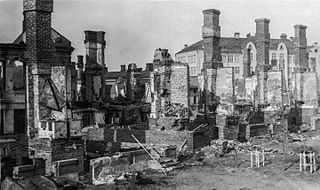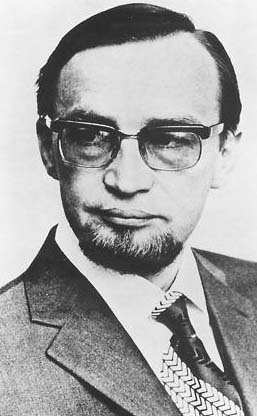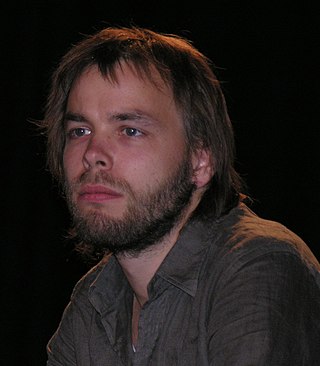
The Finnish Civil War was a civil war in Finland in 1918 fought for the leadership and control of the country between White Finland and the Finnish Socialist Workers' Republic during the country's transition from a grand duchy ruled by the Russian Empire to a fully independent state. The clashes took place in the context of the national, political, and social turmoil caused by World War I in Europe. The war was fought between the Red Guards, led by a section of the Social Democratic Party, and the White Guards, conducted by the senate and those who opposed socialism with assistance late in the war by the German Imperial Army at the request of the Finnish civil government. The paramilitary Red Guards, which were composed of industrial and agrarian workers, controlled the cities and industrial centres of southern Finland. The paramilitary White Guards, which consisted of land owners and those in the middle and upper classes, controlled rural central and northern Finland, and were led by General C. G. E. Mannerheim.

The Lapua Movement was a radical Finnish nationalist, fascist, pro-German and anti-communist political movement founded in and named after the town of Lapua. Led by Vihtori Kosola, it turned towards far-right politics after its founding and was banned after a failed coup d'etat attempt in 1932. The movement's anti-communist activities continued in the parliamentarian Patriotic People's Movement.

Paavo Juhani Haavikko was a Finnish poet, playwright, essayist and publisher, considered one of the country's most outstanding writers. He published more than 70 works, and his poems have been translated to 12 languages.

Rauni-Leena Tellervo Luukanen-Kilde née Valve was a Finnish physician who wrote and lectured on parapsychology, ufology and mind control.
Matti Häyry is Professor of Philosophy at Aalto University School of Business in Helsinki, Finland. In 2004-2013, he was Professor of Bioethics and Philosophy of Law at the University of Manchester in England, and before that he held professorships in philosophy and moral philosophy at the universities of Central Lancashire and Kuopio.

Teemu Tuomas Mäki is a Finnish artist, theatre director and writer. He was born in Lapua, and was one of the first Finnish artists to gain a doctorate. In 2008–2013 he was the Professor of Fine Arts in Aalto University. Before and after that he has worked as a freelancer.

Jani Petteri Toivola is a Finnish actor, dancer, author and an ex-politician. He studied in HB Acting Studio, New York City in 1999–2002. He has performed in several dance works, television series and plays. Toivola is also openly gay. His father is Kenyan and his mother is Finnish.

Pirjo Irene Honkasalo is a Finnish film director who has also worked as a cinematographer, film editor, producer, screenwriter and actress. In 1980 she co-directed Flame Top with Pekka Lehto, with whom she worked earlier and later as well. The film was chosen for the 1981 Cannes Film Festival. In the 1990s she focused on feature documentaries such as "The Trilogy of the Sacred and the Satanic". Honkasalo returned to fiction with Fire-Eater (1998) and Concrete Night (2013), both of which were written by Pirkko Saisio. Concrete Night won six Jussi Awards in 2014, among them the Jussi for the Best Direction and the Jussi for the Best Film. Its world premiere was at the Toronto International Film Festival in Masters series.

Ville Matias Ranta is a Finnish comic artist and cartoonist from Oulu. He received the Finnish comics society's Puupäähattu award in 2009. In his work, Ranta focus on controversial and provocative topics among other things. His comic Mohammed, Fear and Freedom of Speech led to the sacking of the editor Jussi Vilkuna. In 2017, he was made Knight of the National Order of Merit of France. He is the first Finnish comic artist to be admitted into the order.

Juha Sihvola was a Finnish philosopher and historian. He was a university professor of general history from 2000, and part of The Academy of Finland's Centre of Excellence program upon Philosophical Psychology, Morality and Politics, serving as the Deputy Director of the Centre of Excellence from 2008. In the years 2004–2009, he was the Director of Helsinki Collegium for Advanced Studies.

Juha Tapani Bagge is a Finnish author. He began writing full in 1983, and has published multiple novels, plays, comic scripts, radio plays, as well as television series scripts. He has also translated a large number of crime novels.

Concrete Night is a 2013 drama film directed by Finnish filmmaker Pirjo Honkasalo. The film is based on a novel with the same name, written by Pirkko Saisio and published in 1981, though adapted to modern times. The story has also been adapted to theatre and has been played in Finland and in Venezuela. Concrete Night had its world premiere at Toronto International Film Festival in the Masters Series in September 2013. The film was shot in the Helsinki area in Finland in September and October 2012. Produced by Misha Jaari and Mark Lwoff from production company Bufo and co-produced by Swedish Plattform Produktion and Danish Magic Hour Film, the film was funded by Finnish Film Foundation, Yle, Nordisk Film & TV Fond, Swedish Film Institute, Danish Film Institute and Danske Radio. The film was nominated for the 2014 Nordic Council Film Prize. It was selected as the Finnish entry for the Best Foreign Language Film at the 87th Academy Awards, but was not nominated.

Tuomas Kyrö is a Finnish author and cartoonist. He has written novels, columns, causeries and plays and drawn comics and cartoons.
Kirsti Katariina Simonsuuri was a Finnish professor, writer, poet, and researcher of ancient literature. Her honors included the J. H. Erkko Award for Best First Book (1980) and the Wolfson Fellowship Award from the British Academy (1981).

Anna Taina Aleksandra Kortelainen is a Finnish scholar, art historian and non-fiction writer.
Elina Haavio-Mannila is a Finnish social scientist and Professor Emerita of Sociology at the University of Helsinki where she served as the Docent of Sociology (1965–1971), Assistant Professor (1971–1992), and Professor (1992–1998). She is known for researching gender roles and gender in Finnish life. Much of the research in the latter field was done together with Osmo Kontula. In 1958, she became the first woman in Finland to earn the Doctor in Social Sciences degree.

Severin Tsezarevich Dobrovolsky was a Russian White émigré, who lived after the Russian Civil War as a political refugee in Finland. He participated in the activities of several white emigrant organizations and published pro-fascist Russian-language magazines. Dobrovolsky was turned over to the Soviet Union in 1945, where he was sentenced to death and executed.
Front Soldier League was a Finnish civil war White Guard veteran organization between the years 1929 and 1944, which also had extreme right-wing political objectives. In the early 1930s, it had close links with the Lapua movement, in which the leaders of the League played an important role. The Front Soldier League was abolished in 1944 on the basis of the Moscow peace treaty, which forbade fascist organizations. It had a sister organization for women, the Front Soldier Women's League, which was also disbanded.

Satu Rämö is a Finnish-Icelandic author and an entrepreneur in communications.















